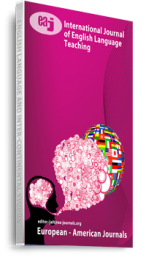Writing instruction is among the most intricate dimensions of English language teaching, especially for pre-service teachers negotiating the boundary between theory and practice. This study examines the challenges faced and strategies employed by final-year pre-service teachers teaching English Language Writing in Ghanaian basic schools. Anchored in a pragmatist paradigm and a sequential explanatory design, the study surveyed 212 pre-service teachers (Cronbach’s α = .82), followed by semi-structured interviews. The descriptive analysis of the survey and the thematic analysis of the interviews converge on two principal challenges. Most respondents cited heterogeneous proficiency (84%) and insufficient materials (79%) as persistent constraints. Conversely, task sequencing, mentor feedback, and collaborative writing emerged as consistently effective pedagogical strategies. Framed by Vygotsky’s Socio-Cultural Theory (SCT), the findings show how mediation, scaffolding, and collaborative learning enable interns to translate theoretical knowledge into responsive classroom practice. The study contributes to teacher education literature by extending SCT applications to pre-service teacher preparation in multilingual and resource-variable contexts. Strengthening structured mentorship, embedding differentiated writing instruction in teaching practice expectations, and improving resource provision to consolidate a sustainable and inclusive writing pedagogy during internships are recommended.
Keywords: Feedback, Scaffolding, Writing pedagogy; pre-service teachers, mentorship, multilingual classrooms

